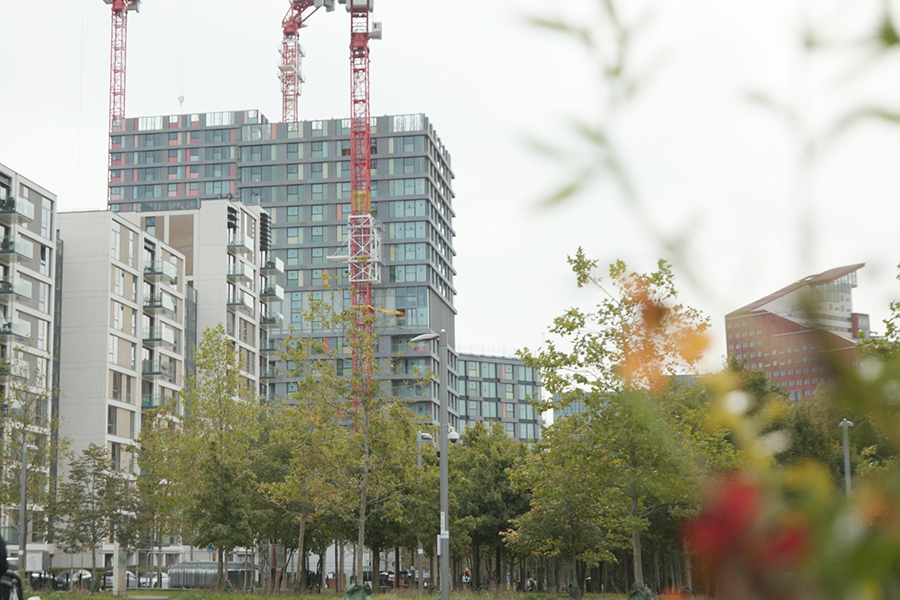When it comes to customers, the more choice the better. That’s been a guiding principle behind a lot of energy (and energy efficiency) policy over the past decade. But what if it’s wrong? What if customers don’t want more choice about low carbon heat? What if they just want a system that works and helps address the climate crisis?
We have to face the fact that when energy policy relies purely on consumer choice, things don’t always go well.
The Green Deal, a scheme that launched in 2012 offering loans for home insulation projects is one example. After the scheme folded in 2015, auditors found that it had cost taxpayers nearly £400m and yet had not delivered energy or carbon savings. Only 1% of households took out loans, a far cry from the 29 million homes that the Committee on Climate Change say must be made low carbon and low-energy if we’re to meet our net zero ambition.
Eight years later, it seems that this consumer-led approach hasn’t changed. The Green Homes Grant launched in late 2020 invites homeowners to apply for vouchers towards the cost of installing energy efficient improvements to their homes. Given the legacy of the Green Deal, many are questioning whether this scheme could go the same way.
However, The Future of Heat: Findings from deliberative workshops with the GB public on the transition to low-carbon heating published in December 2020 by BEIS could be the catalyst that central government needs to begin making brave, national decisions to drive change.
The report, following four deliberative workshops including 134 participants across England, Scotland and Wales and facilitated by BEIS, found that “there was a consensus that the UK government should manage any large-scale approach to transition”, albeit “whilst engaging citizens and having independent consultants to provide advice to local areas.”
Interestingly, “people quite commonly identified the environmental and societal imperative to make change as most important in driving their views.”
Who was involved in the workshop?
Four workshops were held in early 2020; two were with people living in properties on the gas grid (within one hour’s travel of central London & Edinburgh), and two with people living in properties off the gas grid (within one hour’s travel of central Aberystwyth and Aberdeen).
What were the key findings?
- There was a high level of acceptance on the need for a heating transition
- Participants thought UK Government leadership would be necessary
- Participants thought there should be a fair distribution of risks and benefits for everyone
- Advice from trusted and independent sources is favoured
Importantly, participants living on the gas grid felt that they would just want the system that was most efficient and environmentally friendly rather than choice. They also thought it was more important to have a centrally planned transition than have a personal choice on what low-carbon technology they might use. This type of customer makes up 85% of all heat customers.
Participants living off the gas grid wanted more choice, both over which policy scenarios they would be subject to, and choice on the timing of any actions they would have to take to change heating systems.
Casey Cole, CEO of Guru Systems adds:
“The transition to low carbon heating isn’t going to be consumer led, and the public are ready for brave leadership. You can see this in the responses from people in cities. They want whatever system is most efficient and environmentally friendly instead of choice.
“Urban areas have huge potential to be supplied by heat networks, including large scale district energy, so it’s refreshing to see a clear steer from consumers that they want action to be taken centrally. We’ve seen how strong leadership from the Greater London Authority has driven the growth of low carbon heat networks over recent years. If central government similarly took brave decisions nationally, we could see high levels of growth outside of London too.
“Importantly, it’s not just about the impact on the environment. The BEIS 2017 Heat Networks Consumer Survey revealed heat network customers on average pay £100 less than gas customers.
“This research says that people get the urgency of our climate situation. It’s clear that people want this transition to happen because they care about climate change. What’s needed now is real leadership, backed by independent advice, if we’re to achieve our net-zero ambitions.”
Read the full report here.

